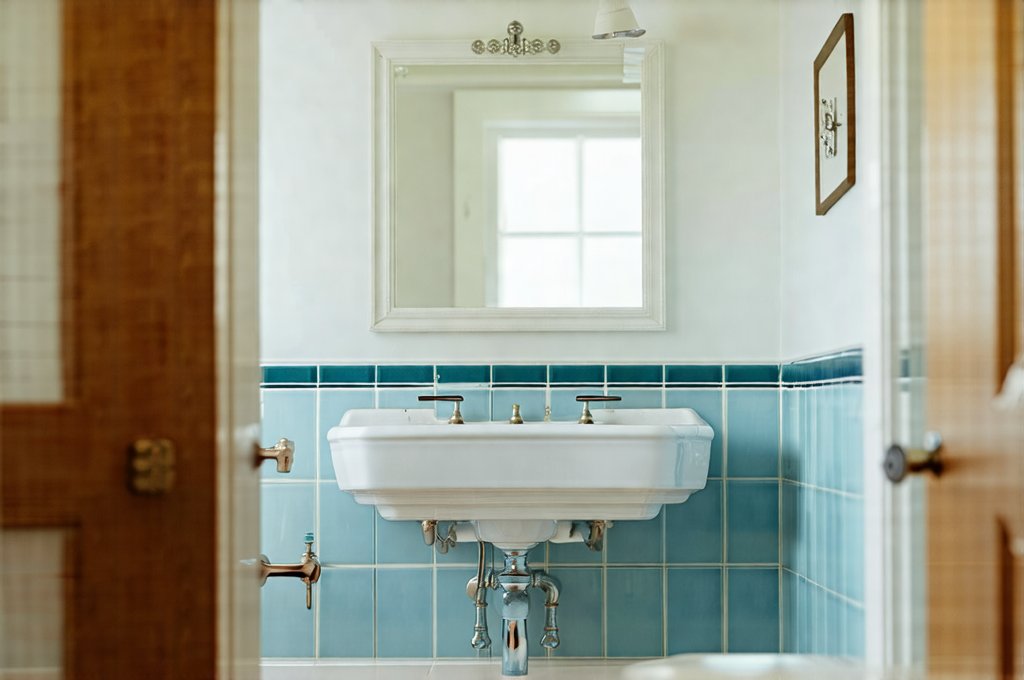Bathrooms – those small, private rooms often taken for granted – become surprisingly potent indicators of our overall well-being during periods of significant life change. They are spaces where routines play out, vulnerabilities are exposed, and self-care (or lack thereof) is acutely felt. When life throws curveballs—a new job, a move, the arrival of a child, loss, or even profound personal growth—our bathroom habits aren’t immune to the ripple effects. What was once a seamless part of daily existence can suddenly become fraught with difficulty, signaling deeper emotional and psychological shifts happening beneath the surface. Understanding this connection is crucial for navigating these transitions with greater self-awareness and compassion.
These struggles aren’t always about dramatic changes in bodily function, though those certainly occur sometimes. More often, they manifest as subtle disruptions – a loss of motivation to maintain hygiene routines, increased anxiety around body image, or a feeling of disconnection from oneself during what should be private moments of care. The bathroom becomes a microcosm of the larger upheaval, reflecting and amplifying feelings of overwhelm, uncertainty, and even grief. Recognizing these signals is the first step toward proactively addressing them and preventing them from escalating into more significant problems. It’s about acknowledging that life transitions impact every aspect of our experience, including the most intimate ones. If you are struggling with digestive symptoms during this time, consider reviewing managing GERD symptoms.
The Emotional Weight of Bathroom Routines
Bathroom routines are far more than just practical necessities; they’re deeply interwoven with self-perception, control, and emotional regulation. For many, these routines offer a sense of normalcy and stability in an otherwise chaotic world. When life throws us into transition, the disruption of those routines can be profoundly unsettling. Consider the simple act of showering: it’s not just about cleanliness; it’s often a ritual that provides comfort, prepares us for the day, or allows for quiet contemplation. Suddenly finding yourself skipping showers, or dreading them, can signal a deeper emotional struggle—perhaps feeling overwhelmed by responsibility, losing touch with self-care, or experiencing depressive symptoms.
The mirror, too, plays a significant role. During periods of change, our body image is often the first thing to be challenged. New stressors, altered diets, sleep deprivation, and shifting priorities can all impact how we perceive ourselves physically. A once-comfortable reflection might now evoke feelings of self-criticism or inadequacy, leading to avoidance behaviors and further disconnection from one’s sense of self. This isn’t vanity; it’s a natural response to the destabilizing effects of change. Self-perception is fluid, and transitions often force us to re-evaluate how we see ourselves, both internally and externally. It can be helpful to bring up the right tests during a checkup if you suspect changes are more than just emotional.
Moreover, the bathroom represents privacy – a space where we are most vulnerable and unguarded. During stressful times, this vulnerability can feel amplified, making it difficult to engage in even basic self-care activities. It’s as if the very act of being alone with oneself becomes overwhelming, triggering anxiety or feelings of helplessness. This is particularly true after experiences of trauma or loss where the sense of safety and privacy has been compromised. Therefore, a change in bathroom habits can be a powerful indicator that emotional support is needed. If these changes are impacting your overall quality of life, building a life doesn’t have to revolve around the bathroom could provide some relief.
Navigating Body Image Shifts
Body image concerns aren’t superficial; they are deeply intertwined with self-worth and mental health. Transitions like parenthood, for example, often bring about significant physical changes that can challenge pre-existing body ideals. The pressure to “bounce back” or conform to societal expectations can be immense, leading to feelings of inadequacy and shame. It’s essential to remember that bodies change, and those changes are a natural part of life’s journey. Focusing on functionality rather than aesthetics can be a helpful shift in perspective.
Here’s how to approach navigating body image shifts during transition:
1. Challenge negative self-talk: Recognize and question critical thoughts about your appearance. Replace them with more compassionate and realistic affirmations.
2. Focus on what your body can do: Instead of dwelling on perceived flaws, appreciate the incredible things your body allows you to experience – giving birth, achieving goals, simply being alive.
3. Limit exposure to unrealistic images: Reduce time spent scrolling through filtered photos or comparing yourself to others online.
4. Seek support: Talk to a therapist, trusted friend, or family member about your concerns.
It’s also important to practice self-compassion. Treat yourself with the same kindness and understanding you would offer a loved one going through a similar experience. Remember that healing takes time, and it’s okay to not feel perfect during periods of change. It may be useful to review stool signs for any physical changes as well.
Addressing Loss of Motivation & Hygiene
A common symptom of stress, anxiety, or depression during life transitions is a loss of motivation – including the motivation to maintain personal hygiene routines. What once felt automatic now requires immense effort, leading to skipped showers, neglected grooming, and feelings of guilt or shame. This isn’t laziness; it’s often a sign that your mental and emotional resources are depleted. The brain simply doesn’t have the capacity to prioritize self-care when overwhelmed by other concerns.
Breaking this cycle requires small steps and a gentle approach. Don’t aim for perfection; focus on incremental improvements. Consider these strategies:
– Start with one small task: Instead of trying to overhaul your entire routine, commit to brushing your teeth or washing your face each day.
– Schedule hygiene as self-care: Treat these activities not as chores, but as acts of kindness towards yourself.
– Create a calming environment: Play soothing music, light a candle, or use aromatherapy while getting ready.
– Seek professional help: If the loss of motivation persists and is accompanied by other symptoms of depression or anxiety, consult with a therapist.
Remember that self-care isn’t selfish; it’s essential for maintaining your well-being during challenging times. It allows you to replenish your energy reserves and cope more effectively with stress. Understanding digestive symptom progression can also alleviate anxiety surrounding potential health concerns.
Reclaiming Privacy & Boundaries
Transitions often disrupt our sense of privacy and boundaries, particularly when relationships change or new demands are placed upon us. The bathroom – traditionally a sanctuary – can feel invaded, making it difficult to relax or engage in self-care activities. This is especially true for parents whose bathrooms may be frequently occupied by children, or individuals caring for elderly relatives who require assistance with personal hygiene.
Reclaiming your privacy requires clear communication and the establishment of healthy boundaries. It’s okay to ask for space and time alone. Here are some ways to do that:
* Communicate your needs: Politely but firmly express your need for uninterrupted time in the bathroom.
* Establish designated times: If possible, create specific periods when you can have privacy without interruption.
* Create physical barriers: Use a lock or doorstop to signal that you are unavailable.
* Practice self-compassion: Recognize that it’s okay to prioritize your own needs and boundaries, even during busy times.
It’s important to remember that protecting your privacy isn’t selfish; it’s essential for maintaining your sense of self and well-being. Acknowledging this need is a critical step towards navigating life transitions with greater resilience and grace. It may also be worthwhile to consider if GI diagnostics are needed during times of significant change.
The Bathroom as a Space for Healing & Self-Care
While the bathroom can be a site of struggle during transitions, it also holds immense potential for healing and self-care. By intentionally repurposing this space, we can transform it into a sanctuary that supports our emotional and physical well-being. This isn’t about expensive renovations or elaborate rituals; it’s about creating a calming and nurturing environment that promotes relaxation and restoration.
Simple changes can make a big difference: incorporating plants, soft lighting, soothing colors, and comforting textures can all contribute to a more peaceful atmosphere. Creating a designated self-care corner with items like essential oils, bath salts, or a favorite book can also encourage mindful moments of respite. The goal is to create a space where you feel safe, comfortable, and able to reconnect with yourself. Intentionality is key; making conscious choices about how you use this space can transform it from a source of stress into a haven for healing.
Furthermore, the bathroom can be used as a space for mindful practices like meditation or deep breathing exercises. Even five minutes spent focusing on your breath while taking a bath can significantly reduce anxiety and promote relaxation. Using aromatherapy with calming scents like lavender or chamomile can further enhance these effects. The key is to create a routine that supports your emotional needs and allows you to disconnect from the stresses of daily life. The bathroom, in essence, becomes a micro-retreat – a space where you can nurture yourself and replenish your energy reserves. If you are experiencing symptoms during seasonal changes, remember managing GERD symptoms is possible.


















